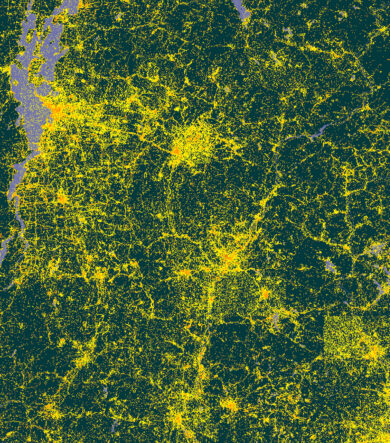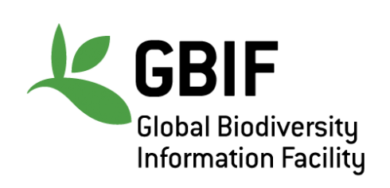The Vermont Atlas of Life has been an official Global Biodiversity Information Infrastructure (GBIF) biodiversity data publisher since 2018.
Data sharing has become an important issue in modern biodiversity research to address large scale questions and conserve species. Despite the steadily growing scientific and conservation demand, data are not always easily accessed. Worse, it may be lost forever if it is not properly archived.

Primary biodiversity data points in GBIF.The Vermont Atlas of Life has been an official Global Biodiversity Information Infrastructure (GBIF) biodiversity data publisher since 2018. GBIF is an international network and research infrastructure funded by the world’s governments and aimed at providing anyone, anywhere, open access to data about all types of life on Earth.
GBIF is an international network and research infrastructure funded by the world’s governments and aimed at providing anyone, anywhere, open access to data about all types of life on Earth.
The GBIF network includes hundreds of institutions that publish biodiversity data, like the Vermont Atlas of Life. Coordinated through its Secretariat in Copenhagen, the GBIF network of participating countries and organizations, working through participant nodes, provides data-holding institutions around the world with common standards and open-source tools that enable them to share information about where and when species have been recorded. This knowledge derives from many sources, including everything from museum specimens collected in the 18th and 19th century to geotagged smartphone photos shared by amateur naturalists in recent days and weeks.
The GBIF network draws all these sources together through the use of data standards, such as Darwin Core, which forms the basis for the bulk of GBIF.org’s index of hundreds of millions of species occurrence records. Publishers provide open access to their datasets using machine-readable Creative Commons licence designations, allowing scientists, researchers and others to apply the data in hundreds of peer-reviewed publications and policy papers each year. Many of these analyses—which cover topics from the impacts of climate change and the spread of invasive and alien pests to priorities for conservation and protected areas, food security and human health— would not be possible without this.
Data found at VAL and GBIF are provided by a wide range of cooperating organizations, websites, individuals, community groups, citizen scientists, government agencies and others. VAL works closely with data providers to assist them to better capture, manage, and share biodiversity data.
Vermont Atlas of Life IPT Data Server
Using a server running the GBIF Integrated Publishing Toolkit (IPT), the VAL IPT data repository is a great way to publish your data if you want a fully available and updated repository with assigned DOI for giving you credit and tracking use. As an official data publisher for GBIF, new and updated datasets on our IPT are being added all the time. From species checklists to occurrence records or sampling-event data, visit our IPT server to see what is available.
There are over 760 biodiversity datasets containing nearly 8 million Vermont occurrence records shared from around the world with GBIF. VAL has helped to provide millions bird records via Vermont eBird, butterfly surveys via e-Butterfly.org, and nearly a million biodiversity records via the Vermont Atlas of Life on iNaturalist.
Download Primary Biodiversity Data
All available data for download via the Vermont Atlas of Life Data Explorer and GBIF.
Do You Have Biodiversity Data to Share?
Perhaps you have a large dataset of species observations that are only on paper forms. Or maybe you have an old spreadsheet or database from work you completed long ago that is somewhere on your computer. Maybe you have notebooks filled with field sightings. Whatever the situation, your hard work will be more widely used for science, conservation and education if others can access it now and far into the future. Whether you want to create a specific atlas on our site, share data with others, or just archive your data for the future with restrictions – we’re here to help you find a solution that fits.







